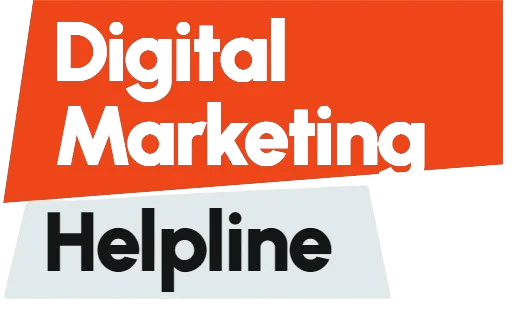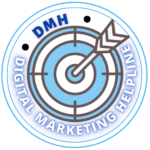
In this unfairly competitive and very complex world of digital landscapes, personal branding is essential to stand out in the crowd. Personal branding is crucial for many nutritionists out there who are starting their practice. I will discuss aspects you need to focus on to build an impressive nutritionist brand in this blog.
Understanding Personal Branding for nutritionists
As a student, one must not limit their understanding of branding to mere logos and taglines. A brand is the reputation of an entity, and when branding is associated with a person, it is termed personal branding. What nutritionists should know about personal branding?
What
Personal branding is the process of curating your perception by others. Your brand allows you to control how you want to appear to others professionally and in private situations. Nutritionists should know the best ways to brand themselves in:
- Authenticity: People like what they can trust, and authenticity between you and your audience is the foundation for that.
- Consistency: Let your message pop up consistently throughout your touchpoints; you should be able to describe your nutritive brand in ten words or fewer.
- Visibility: Make yourself visible at webinars, seminars, industry events, etc.
- Expertise: Prove your knowledge and abilities; position yourself as a leader in a particular subject.
Who
Why nutritionists should care about it is crucial, in my opinion, especially when starting a profession:
- Client Magnet: Your brand can attract customers. People don’t hire the “best” nutritionist.
- Credibility: An excellent nutritive brand provides credibility. Cred decreases risk, and if people trust you, they’ll want to get more involved with your brand.
- Differentiation: People want to know what makes you unique and why they should like you.
- Career Improvement: If you’re trying to own and market your business in your practice, personal branding can help you develop toward that objective.
Leverage Personal Branding for a Nutritionist

Define Your Brand
Consider your values, mission, and what you want people to associate with you. Do you want your clients to consider you the number-one guru of plant-based diets? Perhaps you specialize in prenatal nutrition?
Craft Your Elevator Pitch
How will you describe your brand in a concise, compelling way? Consider it your introduction to someone who could become a potential client in an elevator.
Online Presence
Your website is your digital store. Optimize it for SEO and ensure it tells your brand story.
Social Media
Which platforms does your target audience frequently use? Share valuable content, engage with customers, and stay consistent.
Regularly publish blogs, videos, or infographics. Make sure to include your focus keyword naturally.
Networking
Attend events, collaborate with peers, communicate with influencers. The more people know about your brand – the better.
Feedback Loop
Listen to your audience and adjust your strategy accordingly.
Identify Your USP
Secondly, we all have our USPs, which are unique to each person.
Competitive Analysis
What’s missing? Find out what other nutritionists are offering. Which services are missing in the market? Your USP will cater to these needs.
Testimonials & Success Stories
Your proof of excellence. Gather your client’s testimonials. Share success stories by giving real-life examples of those you have helped change their lives through your guidance.
Communicating your USP
With your statement in check, here’s how to communicate it:
- Website: Make sure that your website homepage prominently features it.
- Social Media: Use it as your bio as you post and initiate chats.
- Networking: While talking about yourself, start with your USP.
Crafting your brand story
The brand story is the core of your brand foundation. It connects you with your audience. How can you get your story as a nutritionist?
- Your Purpose: Why did you become a nutritionist? Was it after you completed a weight loss journey, or are you passionate about well-being? What is your mission as a nutritionist?
- Relatable Moment: Share success stories. For instance, how can small, actionable advice assist your clients? What are the successes of those who have implemented what you have taught them? Include before-and-after examples from your clients’ experiences. Use visuals to illustrate your brand story – use photos, infographics, or videos. Show yourself in action, whether conducting a workshop, preparing a meal, or whipping a delicious smoothie. Ensure your narration is consistent across the various platforms. In other words, you need to use a single voice. Ensure you use the same tone, writing style, and imagery in your social media and website narration. Always end with a call to action. Ask your readers to connect with you, sign up for a newsletter, follow you on social media, or any other action.
Social Media Accounts
Utilize the following types of posts for your social media platforms:
- Instagram: Post your photographs of healthy meals, cooking tips, and some before-and-after photos or behind-the-scenes insights.
- Facebook: Develop a business page, post nutrition tips and customer stories, and reply to your client’s comments.
- Twitter: Use Twitter for posting nutrition trends, articles, or tweets about the research studies.
Consistent Branding
Apply the following strategies to keep it consistent:
- Color, Font, and Image: Use the same color palette, typeface, and font for your website, blog, and social media platforms.
- Tone: Each post on the website or social network must comply with the tone you picked, be it welcoming, authoritative, or compassionate.
- Logo: It is a great way to use a logo and place it on the leads of your blog pages at the top of the website.
Blog the most relevant topics with the help of the following ideas:
- Content Calendar: Think about the things you are going to write.
- Educational Type: Teach your readers to separate nutrition facts from myths and share practical tips.
- Guest Blogging: Ask a skilled expert to write an article on your blog or guest blog for someone else – this will also ensure your popularity growth.
Blog Posts
- Nutrition Tips – give evidence-based advice for healthy eating, meal planning, and more!
- Myth Busters – prepare a post about how it’s false that “Carbs are bad” or “Detox diets work”!
- Recipe Ideas
- Client Success Stories
- Trending Topics: Be on the lookout, and maybe write a blog post about them!
Video Content
- YouTube Channel: Start a YouTube channel to record nutrition tips videos, cooking demonstrations, or Q&A sessions. SEO Optimization – it means using a youtube video title, description, and tags, where all relevant keywords will lead viewers to your content.
- Transcripts: Post written transcripts of your videos on your website. Google can index them, which will improve your SEO.
Podcasts
- Podcast Episodes: Start podcasting! Host a nutrition-based podcast. Invite experts, share knowledge, and present your insights!
- Show Notes: Write down a summarized transcription of each episode and post it on your website. Use your focus keyword naturally.
Infographics
- Visual Appeal: Infographics are eye-catching and shareable to create visually appealing graphics that simplify complex nutrition concepts.
- Embed in Blog Posts
Guest Blogging
- Collaborate: Contact other health and wellness blogs. Ask for guest blogging opportunities!
- Backlinks
Email Newsletters
- Build Your List
- Regular Updates
Social Media Content
- Consistent Posting
- Engage with Followers
- Choose the Right Platforms
Instagram is great for visual content. You may want to share photos of healthy meals, cooking demonstrations, or wellness tips. LinkedIn is a professional platform. Optimize your profile and connect with other experts. You can share industry insights. Facebook – create a business page, share nutrition-related articles, repost client success stories, and engage with followers. Tweet about nutrition trends research findings, and join relevant conversations on Twitter.
Consistent Branding
- Profile Photos and Banners – maintain your profile photos and banners consistent across platforms.
- Bio – craft a short and appealing bio highlighting your expertise and passion for nutrition.
- Tone and Voice – build a consistent tone, be it friendly, authoritative, or empathetic.
Content Strategy
- Regular posting – post with regularing femininity to stay tuned to audiences’ radars.
- Valuable Content – share nutrition tips, myth busters, recipes, and client stories.
- Engage with followers – respond to comments, ask followers questions, or foster discussions.
Visual Content
- Instagram – post pictures of balanced meals, informative infographics, and behind-the-scenes visuals.
- Pinterest – create boards and pins related to nutrition, wellness, and healthy living webinars.
Live Sessions and Webinars
- Live Q&A sessions – answer questions regarding nutrition.
- Webinars – cooperate with other experts to host webinars and give impressive insights.
Collaborate with Influencers
- Health and Wellness Influencers – partner with an influencer that matches Your brand.
- Manage content or conduct events with medical Influencers.

Monitor Analytics
- Track metrics – monitor engagement, reach, and followers.
- Adapts your strategy: change your content strategy and posting schedule according to the date.
Connect with Fellow Nutritionists and Health Experts
- Attend industry conferences, workshops, and webinars. They offer great networking opportunities. Additionally, join professional associations such as the International Association of Health Coaches and the National Association of Nutrition Professionals and collaborate with others. Finally, use LinkedIn to connect with colleagues in nutrition, dietitians, health coaches, etc., share good content, and learn from each other.
Collaborate on Webinars and Workshops
- Collaborate with fellow nutritionists and health coaches using a platform to host a webinar or workshop about practical topics like promoting mindful eating concepts, grocery shopping for meal prep, or debunked myths.
Guest Blogging & Podcasts
- Submit a blog post on health and wellness related topics for review to various websites/ Start collaborating with podcast hosts and ask them if you can discuss nutrition-related issues. They will let you know if you are a good fit for their show.
Consider Joint Ventures
- Fitness trainers, a cooking instructor, holistic practitioners, all these professionals are complementary to yours. You could do joint ventures such as – Creating awareness on meals and exercise, Creating healthy cooking and food habits workshops, and Wellness workshop events.
Cross-Promotion
- Cafes or restaurants, Fitness studios to people who ask about nutrition, Send your recipes etc.
Online Communities
- Find forums, Facebook, or LinkedIn groups on various topics and contribute your knowledge.
Be Generous
- Give out some recipes, a little food prep video, and infographics. Hosting giveaways or mini-competitions online where you pose a challenge such as “post something delicious from your pantry!
Continuous Monitoring
- Google Analytics: Regularly revise the performance of the website. Monitor performance in traffic, bounce rate, duration of each visit, etc.
- Social Media Insights: Facebook, Instagram, and more will give you as much valuable data as possible – learn which content your audience prefers and why.
- Keyword Rankings: All the while, peek at how your focus keyword, “Personal branding for nutritionists,” looks in the search results.
Feedback Loop
- Client Feedback: Be sure to listen. What do clients like about your brand, and what’s the weak point?
- Audience Surveys: Perform surveys or polls and more to gather some valuable insights. Be sure to ask about particular pain points, preferences, and expectations.
Adapt Your Strategy
- Trends and Industry Shifts: adjust your content strategy as advised by the newest industry trends or findings.
- Seasonal Adjustments: focus more on flu season. Get the hint?
Stay Authentic
While adjusting, be close to growth and evolution, but stay who you are fierce.
Online Presence
Your website and social media profiles are your digital storefronts. Make sure they are optimized for search engines and are consistent with each saying.
Content is King
Keep creating valuable content regularly – blogs, videos, podcasts, and infographics. Just remember to sound natural and include your focus keyword.
Collaborate and Network
Work with fellow nutritionists, other health experts, and influencers. Don’t forget about the power of cross-promoting and learning from each other.
Monitor and Adapt
Keep a constant eye on your brand strategy. Adjust based on the feedback, trends, and shifts within the industry. Remember, personal branding is not about being self-absorbed – it’s about serving your audience.
Begin today
Build your brand, engage with your clients, and observe how your digital presence begins to multiply organically.

